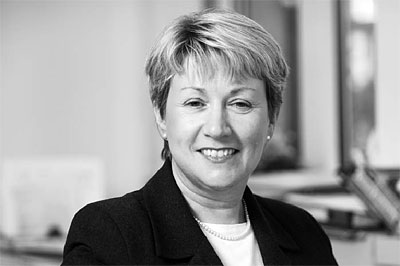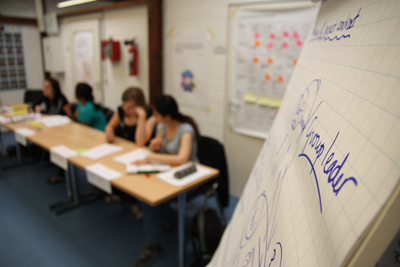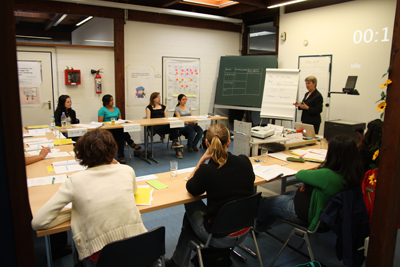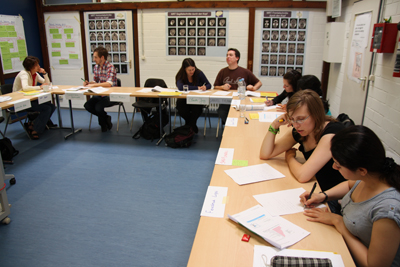Project Management for Research (SS 2012)
Project Management for Research (SS 2012)
Teacher: Dr. Pamela Alean-Kirkpatrick
 |
 |
 |
 |
Project management is a skill being increasingly demanded on the job market both within and especially beyond academia. The PhD research project offers an ideal context to learn the basics of project management; participants apply the tools and methods to their own project environment and start to use the correct vocabulary. In doing so, the doctoral students increasingly understand the importance of using their limited resources in an efficient and effective manner.
Course objectives
After this course, the participants are able to:
- structure, plan, control and document a project’s progress
- identify project risks and develop measures for managing them
- analyze the project's stakeholders and produce a concept to inform them adequately
- apply selected project management methods and tools effectively to their own research project
- use aspects of project management for working constructively with others in a project environment
Target group
Doctoral students who are actively working on a research project (i.e. the research proposal has been written and approved). The course can be attended at any stage of the doctoral work, to greatest advantage during the first half of the project.
Maximally 14 participants.
Contents
- Defining “project”, “project management” and “project boundary”
- Formulating (intermediate) project objectives
- Structuring projects in phases, subprojects, work packages; setting milestones, defining deliverables
- Planning project time and workload in detail
- Tracking and controlling project progress
- Analyzing and managing stakeholders
- Assessing and managing risks
Documenting the project’s progress
Requirements
No prior knowledge of project management is assumed for the course. It is designed for doctoral students who are actively working on a research project (i.e. the research proposal has been written and approved). The course can be attended at any time during the doctorate, to the best advantage during the first half.
Methods
Short theoretical inputs, exercises, small-group discussions. Participants work on applying the theory to their own projects both during the course and also in the transfer phase between the two days. The success of the course depends on the willingness of the participants to contribute ideas and share experiences from their own projects, as well as to show an interest for the questions and needs of the other doctoral students in the course.
Target date
Part 1:
Friday, June 15, 2012
Starting: 8:45 a.m.
Ending: 5:30 p.m.
Course room of the BCF, Hansastr. 9a
Part 2:
Friday, June 29, 2012
Starting: 8:45 a.m.
Ending: 5:30 p.m.
Course room of the BCF, Hansastr. 9a
Comments of participants

